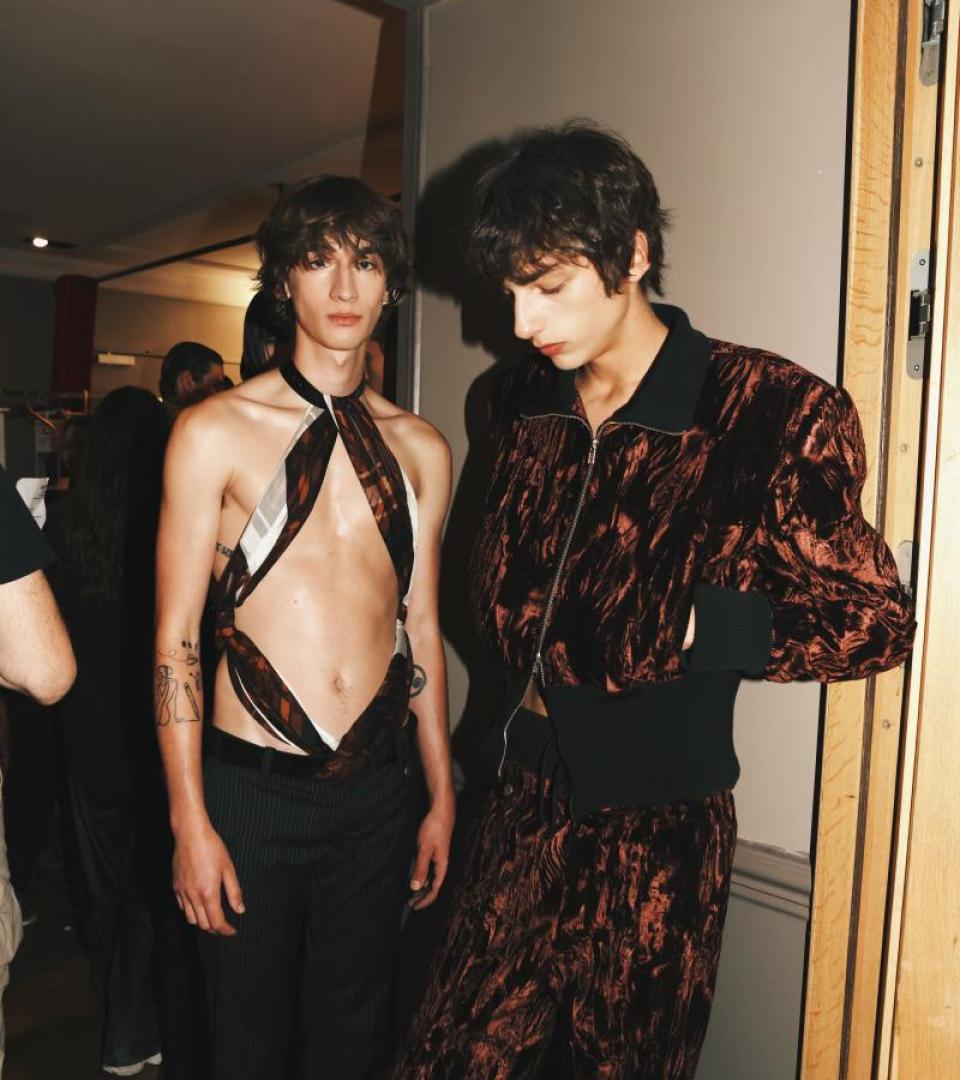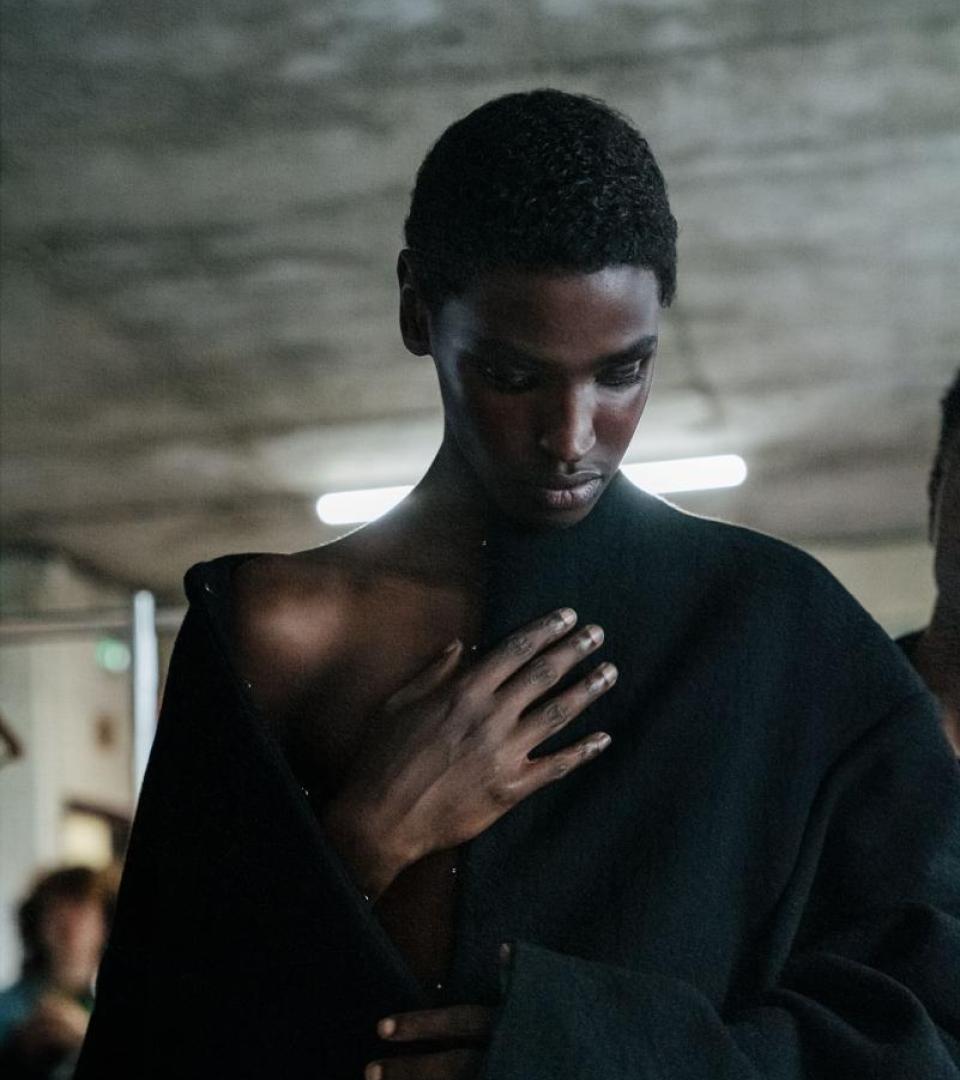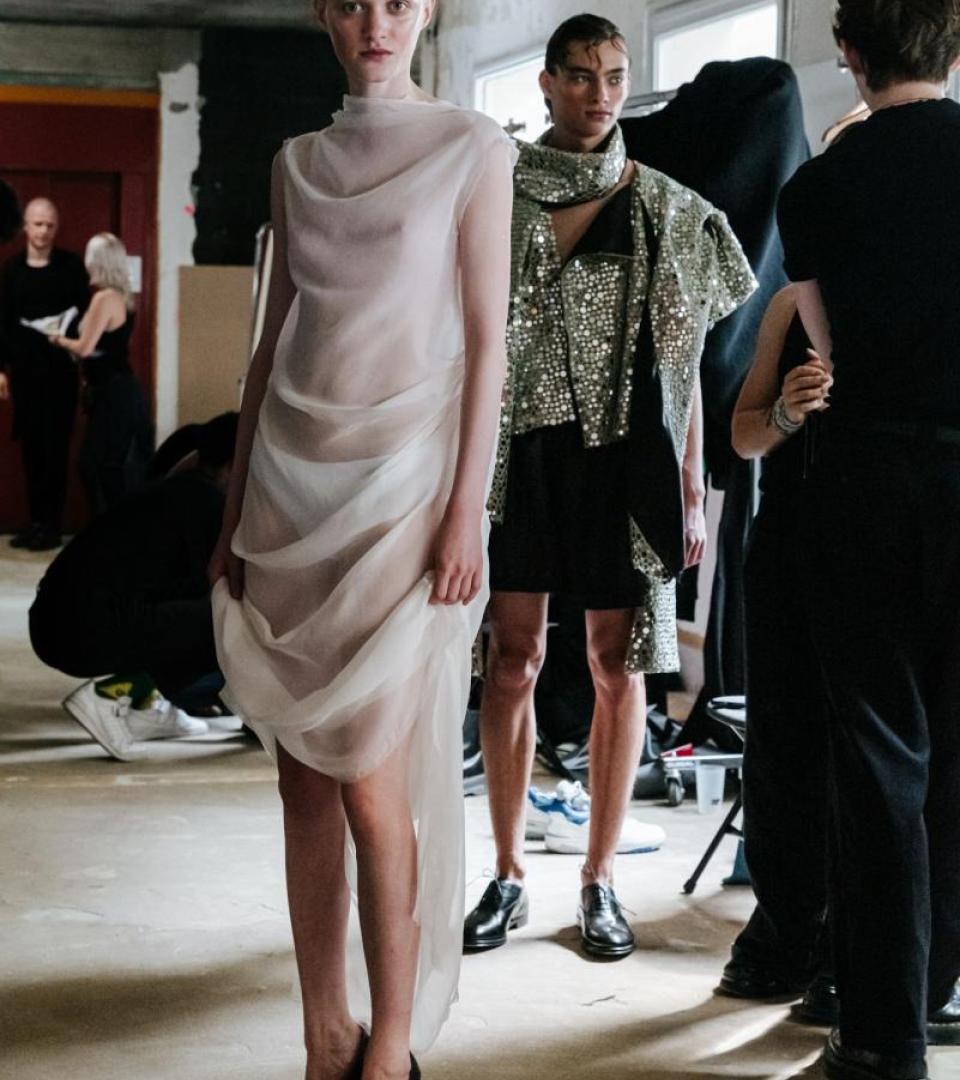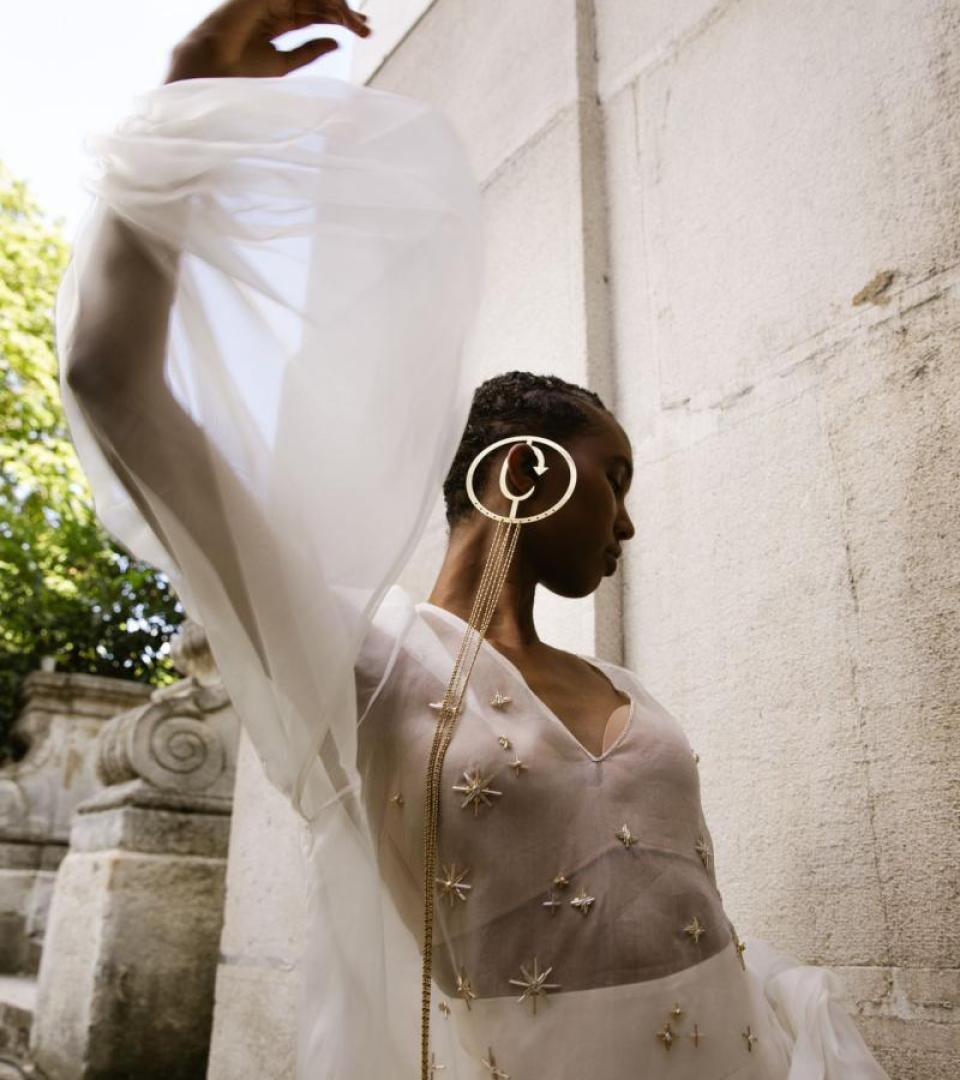What are your thoughts on the importance of this season, given the number of new designer debuts?
Naturally, there’s a lot of anticipation, since we’re talking about major designers stepping into very important houses. But I’m afraid that, for many of them, the pressure will be overwhelming — especially the commercial pressure. And that can be disastrous. Too much commercial pressure is never a good thing. So yes, there’s great expectation, but I believe there will also be great disappointment.
Tell us something surprising about how you got to where you are today.
I got to where I am today thanks to Carine Roitfeld, whom I met at the Vogue offices on Place du Palais-Bourbon at the time. She needed an assistant, came straight up to me and asked, “Are you available?” I had just finished my internship at Vogue, so I said, “Yes, I’m available,” and that’s how the adventure began.
What do you enjoy most about Paris Fashion Week?
I find Paris Fashion Week to be the most creative of them all. For me, it is the most inventive, constantly showcasing new talents and highly interesting designers. There’s a real sense of energy and excitement. It is, without question, the most thrilling Fashion Week.
Do trends still matter?
No. I’ve never really approached things in terms of “trends.” I find the word itself a bit outdated, almost old-fashioned. Of course, every season brings certain overarching directions, but the word “trend” feels inappropriate to me.
Given the current uncertainties, how do you see brands and houses driving growth effectively?
I would start by saying we need to give time and allow new designers in a house the opportunity to truly express themselves. You can’t expect a new artistic director or designer to prove everything in just one or two seasons; that’s not enough. A creator needs time to find their voice. At some point, this game of musical chairs, which has become completely absurd, needs to stop. It exhausts everyone and, in my view, is totally counterproductive.
What’s your favourite way or word to compliment someone’s style?
“Elegance.” It’s a word I really love. Elegance is rare. I also like the word “refinement.” But elegance, for me, remains the greatest compliment. I also adore saying that someone has style. Having style doesn’t mean dressing in designer pieces or expensive clothes — it’s about having your own identity. So, saying someone has style, or calling them elegant, is the highest compliment.
In what ways does artificial intelligence help you develop and realize ideas that might not have been possible before?
I don’t use artificial intelligence very much, and it’s certainly not going to give me ideas. Absolutely not. My ideas come from me, from my own inspirations. The only way AI can help is by organising my thoughts, which can sometimes be a bit confusing or mixed. But it’s certainly not AI that brings me creativity.
What aspect of your work excites and stimulates you the most?
When I’ve had the chance to work for certain great houses, sometimes alongside Carine Roitfeld, what fascinated me most was being part of the entire creative process. Starting very early with the conception of a collection and seeing it through to the final moment – the show. And then afterwards, the ad campaigns, the visual storytelling around the collection. It’s a full journey, from A to Z, and it’s incredibly exciting to be involved in that whole process.
Fashion is often a laboratory of ideas. How can fashion shows also be a laboratory for your own ideas?
Fashion shows are always thrilling moments, because they stage an entire collection. Designers put so much energy, passion, and creativity into them. Yes, I truly believe shows are an essential moment in the creative process. It’s not the only part, but it’s a crucial one. It involves staging, music, casting, lighting — so many elements come together, very inspiring. And I hope I’ll continue to see many more of them.
Can you share a mantra that particularly resonates with you right now?
The only mantra I’d like to follow is to stay true to yourself. For me, that really means trusting my instincts.
This interview has been lightly edited.



